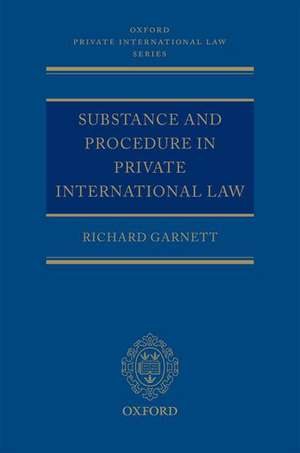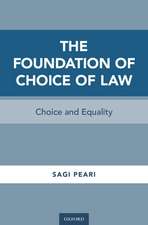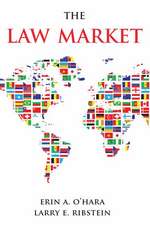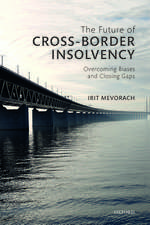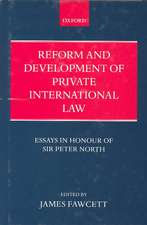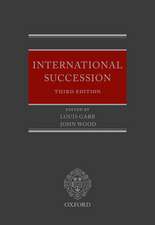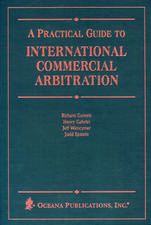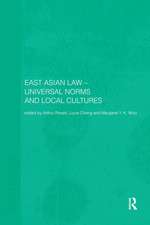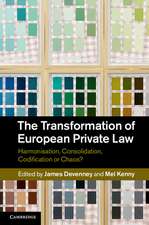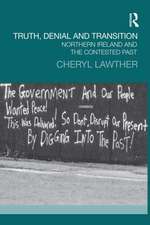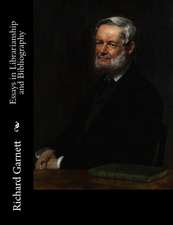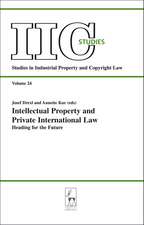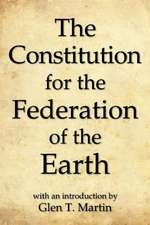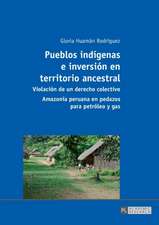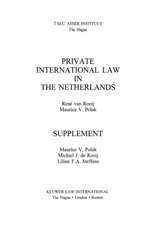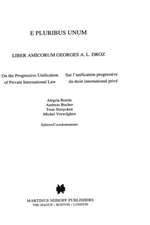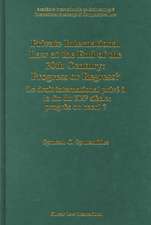Substance and Procedure in Private International Law: Oxford Private International Law Series
Autor Richard Garnetten Limba Engleză Hardback – 8 mar 2012
Din seria Oxford Private International Law Series
- 23%
 Preț: 995.07 lei
Preț: 995.07 lei - 29%
 Preț: 1617.58 lei
Preț: 1617.58 lei - 30%
 Preț: 1012.11 lei
Preț: 1012.11 lei - 29%
 Preț: 808.73 lei
Preț: 808.73 lei - 29%
 Preț: 1120.08 lei
Preț: 1120.08 lei - 34%
 Preț: 1120.48 lei
Preț: 1120.48 lei - 29%
 Preț: 1816.09 lei
Preț: 1816.09 lei - 34%
 Preț: 893.75 lei
Preț: 893.75 lei - 34%
 Preț: 1046.04 lei
Preț: 1046.04 lei - 34%
 Preț: 751.11 lei
Preț: 751.11 lei - 34%
 Preț: 1788.31 lei
Preț: 1788.31 lei - 34%
 Preț: 748.64 lei
Preț: 748.64 lei - 34%
 Preț: 1360.64 lei
Preț: 1360.64 lei - 34%
 Preț: 1346.80 lei
Preț: 1346.80 lei - 34%
 Preț: 1364.01 lei
Preț: 1364.01 lei - 34%
 Preț: 1242.62 lei
Preț: 1242.62 lei - 34%
 Preț: 1288.44 lei
Preț: 1288.44 lei - 34%
 Preț: 1367.22 lei
Preț: 1367.22 lei - 34%
 Preț: 1419.64 lei
Preț: 1419.64 lei - 34%
 Preț: 1625.49 lei
Preț: 1625.49 lei - 34%
 Preț: 1362.81 lei
Preț: 1362.81 lei - 34%
 Preț: 1142.81 lei
Preț: 1142.81 lei - 19%
 Preț: 332.87 lei
Preț: 332.87 lei - 34%
 Preț: 965.80 lei
Preț: 965.80 lei - 34%
 Preț: 1331.32 lei
Preț: 1331.32 lei - 34%
 Preț: 1244.02 lei
Preț: 1244.02 lei - 34%
 Preț: 1317.50 lei
Preț: 1317.50 lei - 34%
 Preț: 1292.62 lei
Preț: 1292.62 lei - 34%
 Preț: 1171.76 lei
Preț: 1171.76 lei - 34%
 Preț: 969.97 lei
Preț: 969.97 lei - 23%
 Preț: 2700.17 lei
Preț: 2700.17 lei - 34%
 Preț: 1422.04 lei
Preț: 1422.04 lei - 19%
 Preț: 635.85 lei
Preț: 635.85 lei - 23%
 Preț: 743.12 lei
Preț: 743.12 lei - 23%
 Preț: 1577.30 lei
Preț: 1577.30 lei - 23%
 Preț: 2747.09 lei
Preț: 2747.09 lei - 34%
 Preț: 1169.51 lei
Preț: 1169.51 lei - 34%
 Preț: 1228.72 lei
Preț: 1228.72 lei - 34%
 Preț: 1234.59 lei
Preț: 1234.59 lei - 34%
 Preț: 791.72 lei
Preț: 791.72 lei - 23%
 Preț: 932.05 lei
Preț: 932.05 lei - 34%
 Preț: 1801.91 lei
Preț: 1801.91 lei - 30%
 Preț: 1573.17 lei
Preț: 1573.17 lei - 30%
 Preț: 733.22 lei
Preț: 733.22 lei - 30%
 Preț: 674.81 lei
Preț: 674.81 lei
Preț: 1436.40 lei
Preț vechi: 2183.90 lei
-34% Nou
Puncte Express: 2155
Preț estimativ în valută:
274.85€ • 287.74$ • 227.42£
274.85€ • 287.74$ • 227.42£
Carte tipărită la comandă
Livrare economică 25-31 martie
Preluare comenzi: 021 569.72.76
Specificații
ISBN-13: 9780199532797
ISBN-10: 0199532796
Pagini: 454
Dimensiuni: 160 x 236 x 32 mm
Greutate: 0.8 kg
Editura: OUP OXFORD
Colecția OUP Oxford
Seria Oxford Private International Law Series
Locul publicării:Oxford, United Kingdom
ISBN-10: 0199532796
Pagini: 454
Dimensiuni: 160 x 236 x 32 mm
Greutate: 0.8 kg
Editura: OUP OXFORD
Colecția OUP Oxford
Seria Oxford Private International Law Series
Locul publicării:Oxford, United Kingdom
Recenzii
Garnett's text is fine fare for those who toil in the vineyard of Private International Law. In fact, it has much to offer to anyone interested in the foundations and implications of distinctions that inform the practice of the law in international cases.
By presenting an accurate and intelligible analysis of the substance/procedure distinction in the area of private international law, this work provides an excellent guide for Commonwealth lawyers advising their clients on a broad range of issues. No lawyer who has carefully reviewed Professor Garnett's book will be left with any unanswered questions.For this, private international law scholarship owes much to Garnett for such a wonderfully detailed and comprehensive work.
Substance and Procedure in Private International Law is a major accomplishment. Its stated aim is to provide scholars and practitioners with clear guidance not only as to the current state of the law but also as to how it may develop and be applied in future cases.42 It achieves this aim admirably, striking a sophisticated balance between detailed description, incisive analysis, well-informed criticism, and sensible proposals for the refinement and improvement of the law. This combination makes this book a valuable resource to lawyers engaged in and interested in the study of cross-border litigation. The book will be of particular interest to practising lawyers in Commonwealth jurisdictions, and is especially recommended to Australian lawyers, given its comprehensive coverage of the Australian law.
A welcome and timely treatise ... Professor Garnett's book goes a good long way towards minding the gap and suggesting what may fill it: both by what it does, but also by the responses it ought to stimulate in others who will realise that though the formal strength of the common law is the doctrine of precedent, it derives its rational strength from debate. Professor Garnett has defined his position, well and truly. We are very much better off as a result.
This book is an invaluable addition to the library of any private international law scholar. For the practitioner, it offers a thorough analysis of the law as it stands in a number of jurisdictions and provides incisive analysis of trends for future legal development. For the academic, it provides a framework for an area of private international law which has been, and remains, bedevilled by difficulty. In time, one suspects that Professor Garnett's work will come to shape the development of the law and will help to secure the coherence in this area to which his work is directed.
Quite simply, this is the most extended discussion of a seminal topic in the conflict of laws to be found anywhere in the common law world. It is an internationally significant work of great erudition and insight, written with a clarity that is worthy of acclamation.
There can be little doubt that it is the only book that presently offers a proper and comprehensive examination of the question of whether and, more importantly, why, something should be considered substantive or procedural ... It is certain that it will remain relevant and influential for a long time to come.
By presenting an accurate and intelligible analysis of the substance/procedure distinction in the area of private international law, this work provides an excellent guide for Commonwealth lawyers advising their clients on a broad range of issues. No lawyer who has carefully reviewed Professor Garnett's book will be left with any unanswered questions.For this, private international law scholarship owes much to Garnett for such a wonderfully detailed and comprehensive work.
Substance and Procedure in Private International Law is a major accomplishment. Its stated aim is to provide scholars and practitioners with clear guidance not only as to the current state of the law but also as to how it may develop and be applied in future cases.42 It achieves this aim admirably, striking a sophisticated balance between detailed description, incisive analysis, well-informed criticism, and sensible proposals for the refinement and improvement of the law. This combination makes this book a valuable resource to lawyers engaged in and interested in the study of cross-border litigation. The book will be of particular interest to practising lawyers in Commonwealth jurisdictions, and is especially recommended to Australian lawyers, given its comprehensive coverage of the Australian law.
A welcome and timely treatise ... Professor Garnett's book goes a good long way towards minding the gap and suggesting what may fill it: both by what it does, but also by the responses it ought to stimulate in others who will realise that though the formal strength of the common law is the doctrine of precedent, it derives its rational strength from debate. Professor Garnett has defined his position, well and truly. We are very much better off as a result.
This book is an invaluable addition to the library of any private international law scholar. For the practitioner, it offers a thorough analysis of the law as it stands in a number of jurisdictions and provides incisive analysis of trends for future legal development. For the academic, it provides a framework for an area of private international law which has been, and remains, bedevilled by difficulty. In time, one suspects that Professor Garnett's work will come to shape the development of the law and will help to secure the coherence in this area to which his work is directed.
Quite simply, this is the most extended discussion of a seminal topic in the conflict of laws to be found anywhere in the common law world. It is an internationally significant work of great erudition and insight, written with a clarity that is worthy of acclamation.
There can be little doubt that it is the only book that presently offers a proper and comprehensive examination of the question of whether and, more importantly, why, something should be considered substantive or procedural ... It is certain that it will remain relevant and influential for a long time to come.
Notă biografică
Richard Garnett is a Professor of Law at the University of Melbourne and is a national consultant to Freehills Solicitors in Australia. He regularly advises on cross-border litigation and arbitration matters and has written extensively in these fields, with his work cited by European, North American and Australian courts. He has been admitted as a barrister and solicitor in Victoria, a solicitor in New South Wales and a solicitor in England and Wales. He holds degrees in law from the University of New South Wales and Harvard Law School.
